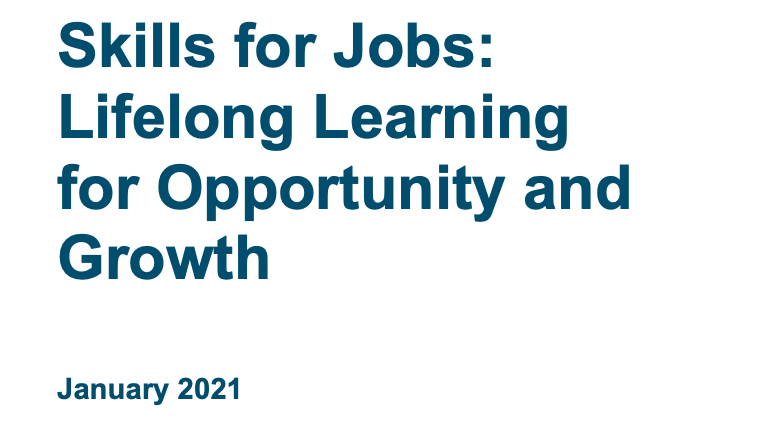25 JAN 2021
Employers to have more say over FE under government proposals
Department for Education white paper promises to give businesses a ‘central role’ in developing courses to meet local needs

Employers will be given more say in what skills and training colleges provide as part of wide-ranging changes to post-16 education proposed by the government today.
A white paper published by the Department for Education (DfE) outlined plans to allow business groups work alongside colleges to “develop tailored skills plans to meet local training needs”.
As well as pledging £65m of funding to create College Business Centres to facilitate collaboration, under the proposals employers will be given a “central role” in designing nearly all technical courses by 2030.
Through the proposals in the white paper, the government hopes to move the focus of post-16 education away from universities towards further education and technical qualifications. The plan aims to “ensure that the education and training people receive is directly linked to the skills needed for real jobs”, the government said.
Gavin Williamson, the education secretary, said: “These reforms are at the heart of our plans to build back better, ensuring all technical education and training is based on what employers want and need, whilst providing individuals with the training they need to get a well-paid and secure job, no matter where they live, and in the sectors that are critical to our future economic success.”
The proposals were welcomed by the CIPD, but it cautioned that many businesses would need additional support identifying their own skills needs and engaging with the education sector.
Peter Cheese, chief executive of the CIPD, said that putting employers at the heart of the UK’s further education system was a “significant step forward” that would help close the growing skills gaps many organisations face. “This is a key part of the solution to tackling the UK’s skills development and productivity deficit and equipping people for changes to the world of work driven by increased use of AI and automation,” he said.
But, Cheese added: “Many organisations, particularly smaller firms, will need support and help as well, for example in how they best engage with the new College Business Centres. Many struggle to clearly identify their organisation's own skills deficits and development needs.
“Access to specialist HR and people development expertise will be needed if they are to engage meaningfully with colleges and also ensure that people’s skills are used effectively in the workplace so investment in training is not wasted,” Cheese said.
Stephen Isherwood, chief executive of the Institute of Student Employers, also welcomed the white paper, but called on the government to ensure it was “fully funded and supported”.
“So far government rhetoric on vocational education and apprenticeship has been accompanied by bureaucracy and too many policy changes. This has resulted in a decline in apprenticeship numbers, rather than an increase,” said Isherwood. “It is essential that changes to the system are gradual and done with careful employer consultation.”
In the white paper, the government added more detail to its plans to create a ‘lifetime skills guarantee’, including the already announced plans to give all adults without A-levels or equivalent the opportunity to train for one, and plans to provide flexible student finance to allow adults to retrain “throughout their lives”.
Sharron Pamplin, partner for human resources at Deloitte, said strengthening the role and voice of businesses in the post-16 education system would ensure people develop the skills matched to the needs of employers. “This will open up a broad range of opportunities for people to access exciting and rewarding careers and support the companies and sectors that will help drive future UK economic growth.
“The measures announced today will also support the training and life-long learning we see as critical to the future of work. They will enable the UK workforce to remain agile to the ever changing skills requirements of employers in the future,” she said.
SOURCE: People Management